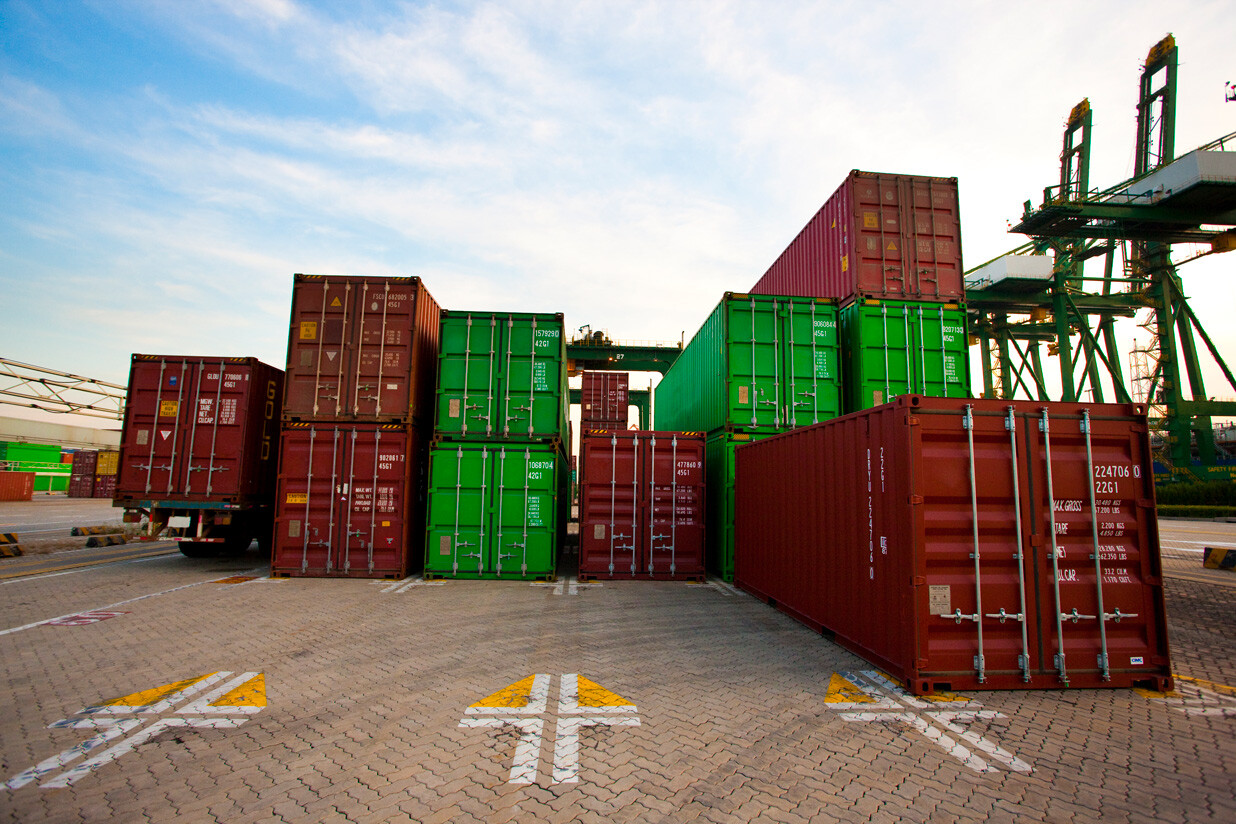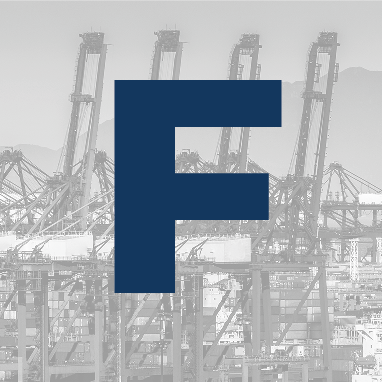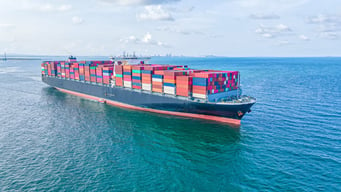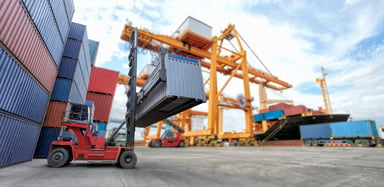
FOB Origin

Home > Freight Glossary > FOB Origin

Trending
What does FOB origin mean?
FOB Origin, also known as "Free on Board Origin," is a shipping term used in international trade. It indicates that the buyer takes ownership and responsibility for the goods as soon as they leave the seller's shipping point. Essentially, the risk and cost of transporting the goods transfer from the seller to the buyer once the goods are loaded onto the transport vehicle at the point of origin.
Seller’s responsibilities under FOB origin
Under FOB origin terms, the seller is responsible for:
- Packaging the goods securely for transport.
- Loading the goods onto the transportation vehicle at the specified FOB point of origin.
- Providing the necessary documentation for the shipment.
The seller’s responsibility ends once the goods are loaded onto the transport vehicle, and from that point onward, any risk or cost associated with transportation shifts to the buyer.
Buyer’s responsibilities and freight collect option
The buyer’s responsibilities under FOB origin include:
- Arranging and paying for the transportation from the FOB origin point.
- Assuming all risks for the goods once they are loaded onto the transport vehicle.
- Handling any loss, damage, or additional costs that may occur during transit.
When the term FOB origin freight collect is used, it means the buyer will pay the freight charges upon receiving the goods. This can also be referred to as FOB origin collect
Examples of FOB origin transactions
Consider a company in Germany that manufactures machinery and sells it to a buyer in Canada. Under FOB origin terms, the German manufacturer’s responsibilities include producing, packaging, and loading the machinery onto a ship at the port of Hamburg. Once the machinery is on board, the Canadian buyer takes over, assuming all transportation costs and risks from Hamburg to the final destination in Toronto. This includes ocean freight, insurance, and any other expenses incurred during transit. If the terms are FOB origin freight collect, the Canadian buyer will pay the freight charges upon arrival in Toronto.
Legal and Compliance Aspects
Understanding the legal implications of FOB origin terms is crucial for both buyers and sellers. The transfer of risk and responsibility must be clearly documented to avoid disputes. Additionally, compliance with local and international trade regulations is essential to ensure smooth transactions.
Advantages and Challenges
Benefits of using FOB origin in shipping
- Cost Control: Buyers have more control over shipping costs and can choose their preferred carriers and routes.
- Responsibility Transfer: Sellers can focus on production and packaging, leaving transportation logistics to the buyer.
- Flexibility: Buyers can negotiate better freight rates and optimize logistics according to their needs.
Common challenges and how to overcome them
Risk Management: Buyers must manage the risks associated with transporting goods, including damage or loss. This can be mitigated by purchasing appropriate insurance.
Coordination: Effective communication between buyers and sellers is essential to ensure that responsibilities are clear and that goods are handed over smoothly at the FOB point of origin.
Documentation: Accurate and thorough documentation is crucial to outline the transfer of responsibilities and mitigate any potential legal issues.
Contact

Ocean Freight

Road Freight

Connect with Our Logistics Experts
Choose the specialized line for your specific cargo needs. Our dedicated teams are standing by to assist you in real-time.
+1 (646) 722-0968 | +1 (786) 550-0401
Contact
Contact
Things to know
FOB origination pricing refers to the "Free on Board" shipping term, where the buyer takes ownership of the goods once they are loaded onto the shipping vessel at the point of origin (the seller’s location or a specific port). The key aspects of FOB origination pricing are:
- Seller's Responsibility: The seller is responsible for the costs and risks of transporting the goods to the port of origin, including loading them onto the ship.
- Buyer’s Responsibility: Once the goods are on board, the buyer assumes all responsibility for shipping, insurance, and transportation costs from the origin port to the destination.
In essence, the buyer covers all costs from the moment the goods are loaded onto the vessel. For businesses like InterWF, FOB origination pricing is commonly used for international freight shipping, giving the buyer more control over logistics from the departure point.
Example 1: FOB Origin at Seller’s Warehouse
- Scenario: A company in the U.S. orders machinery from a manufacturer in Brazil under FOB origin terms.
- Responsibility:
- The Brazilian manufacturer arranges for the machinery to be transported from their warehouse to the port in Brazil.
- Once the machinery is loaded onto the ship at the port in Brazil, the U.S. buyer assumes all responsibility, including shipping, insurance, and any risks during transit to the U.S.
Example 2: FOB Origin at Specific Port
- Scenario: A U.S. retailer buys coffee beans from a Brazilian supplier under FOB origin (Port of Santos) terms.
- Responsibility:
- The Brazilian supplier covers transportation to the Port of Santos and ensures the coffee is loaded onto a ship.
- Once loaded, the U.S. retailer is responsible for the shipping costs, insurance, customs, and any issues that arise after the coffee beans are on board the vessel.
Example 3: FOB Origin for Air Freight
- Scenario: A U.S.-based electronics distributor orders smartphones from a manufacturer in Brazil under FOB origin (São Paulo airport).
- Responsibility:
- The Brazilian manufacturer delivers the smartphones to São Paulo International Airport and loads them onto the plane.
- From that point, the U.S. distributor is responsible for the air freight charges, customs clearance, and any risks during the flight to the U.S.
FOB origin, freight allowed means the buyer takes ownership and responsibility for the goods once they are shipped, but the seller covers the freight costs to the destination. The buyer is still liable for any risks during transit, but they don't pay for the shipping charges.
FOB point of origin (or FOB shipping point) means that the buyer takes ownership and responsibility for the goods as soon as they leave the seller's location or are loaded onto the shipping vessel. From that point, the buyer assumes all transportation costs and risks associated with the shipment.
the point at which the seller's responsibility for the goods ends and the buyer's responsibility begins. FOB first cost typically refers to the initial cost that a buyer incurs when purchasing goods under the FOB shipping point term.
When goods are sold FOB shipping point (also known as FOB origin), the buyer assumes responsibility for the goods once they leave the seller’s premises or shipping point. The first cost in this case includes:
- Cost of goods (the price of the product itself).
- Freight costs from the seller’s location to the destination, including transportation, insurance, and other charges up to the point the goods are loaded onto the vessel or carrier.
- Handling or packaging costs that might be included to prepare the goods for shipment.
In short, FOB first cost reflects the initial price of the product and the shipping charges that the buyer has to cover from the point of shipment until the goods are loaded for delivery.







